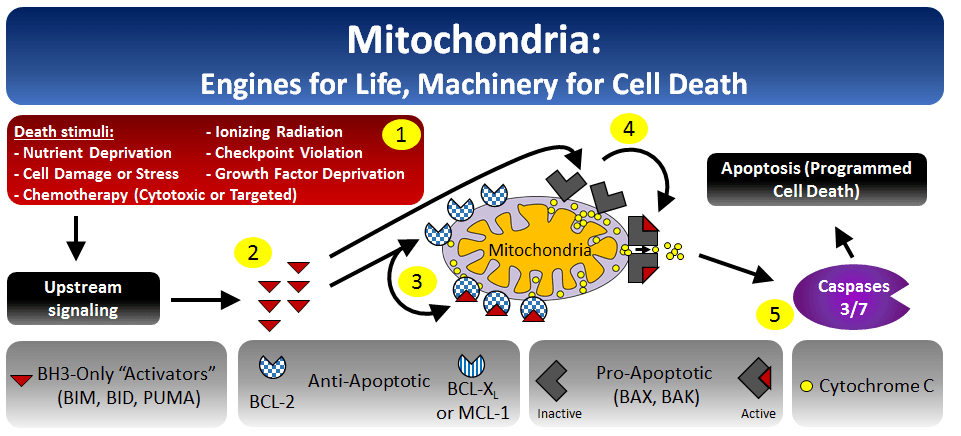In order for us to stay alive, cells within our bodies must die. Damaged, dysfunctional or superfluous cells must constantly be removed via apoptosis to maintain homeostasis (the constancy of our bodies) and when this process goes awry, it can have disastrous consequences.

The Sarosiek Laboratory studies apoptosis, which is controlled by the BCL-2 family of proteins at the mitochondria. In this simplified schematic, cellular stress or damage signals [1] unleash pro-death proteins (BH3-only “activators” of apoptosis) [2], which can either be bound and sequestered by anti-apoptotic proteins such as BCL-2, BCL-XL or MCL-1 [3] or activate BAX and/or BAK [4]. Activated BAX or BAK form pores in mitochondrial membranes, leading to release of cytochrome c and consequent activation of caspases [5] for dismantling of the cell. In the average adult, between 50 and 70 billion cells die each day via apoptosis to maintain homeostasis. Defects in this pathway are associated with cancer as well as neurodegenerative, inflammatory and autoimmune diseases.
Want to learn more? Read our comprehensive review entitled “Regulation of apoptosis in health and disease: the balancing act of BCL-2 family proteins” by downloading it here.



